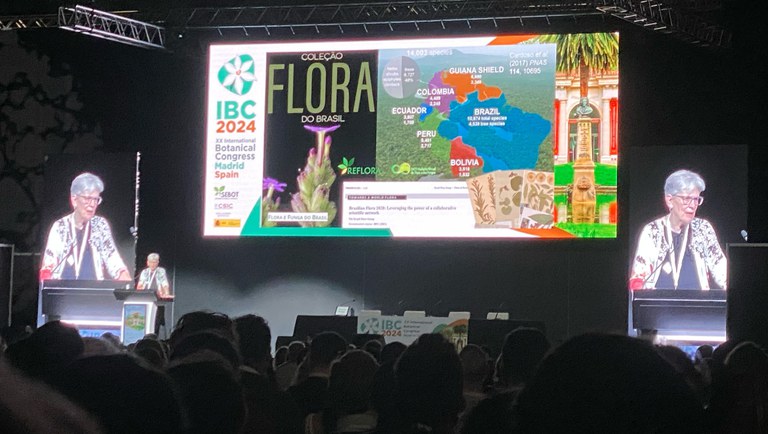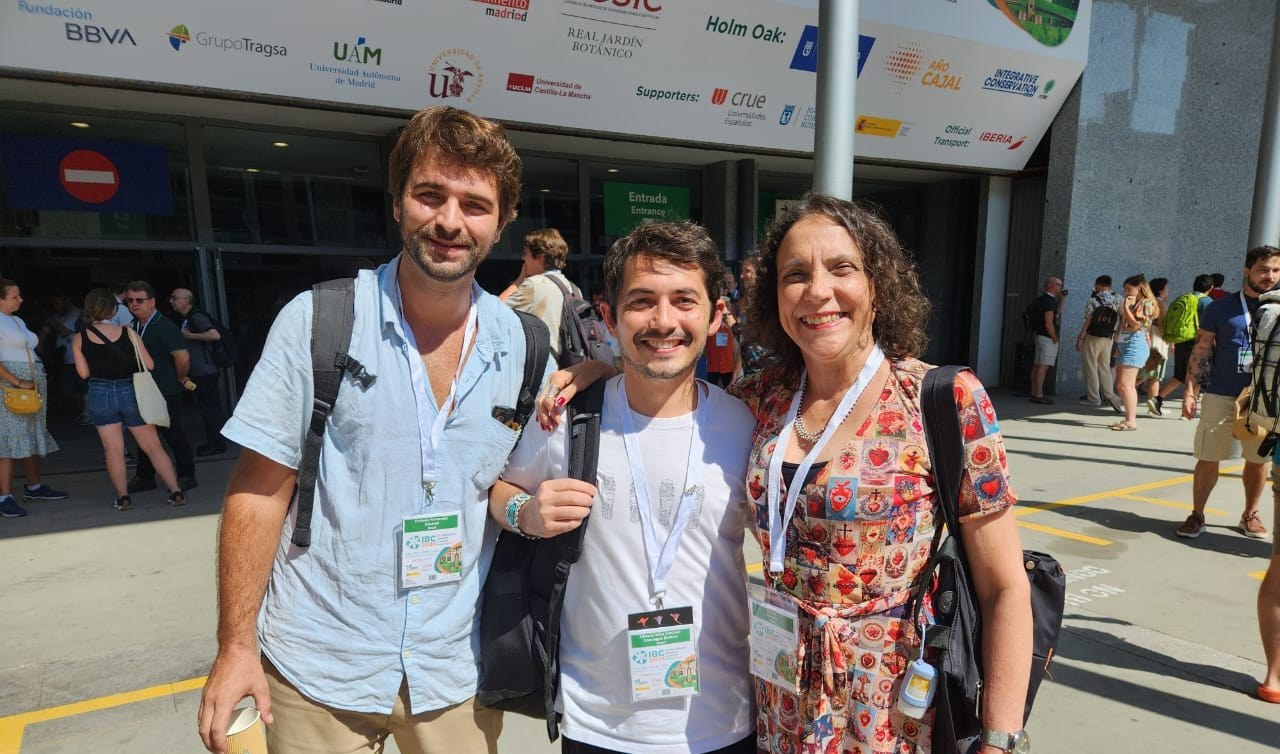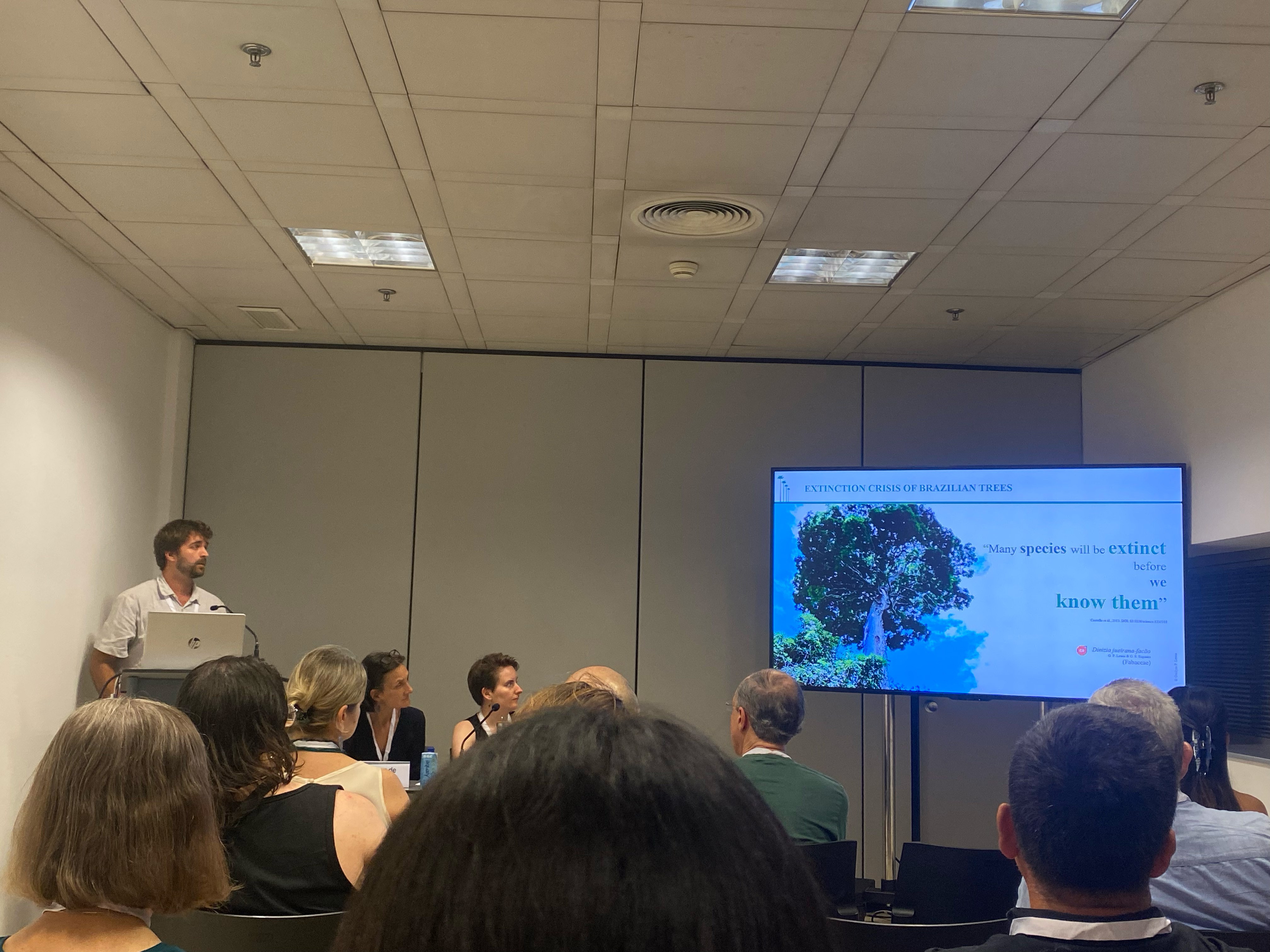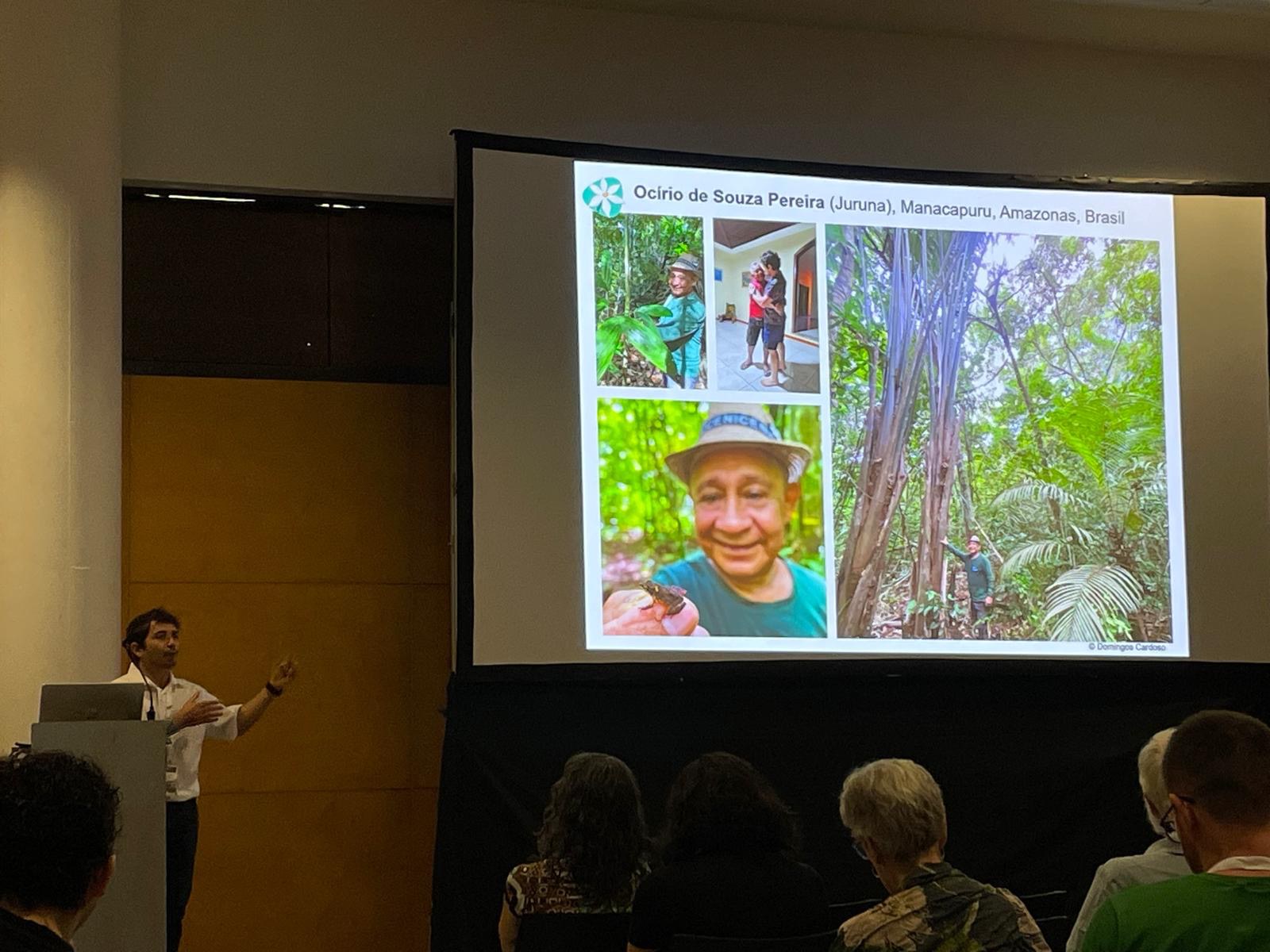Notícias
Contributions from the Rio de Janeiro Botanical Garden Research Institute at the XX International Botanical Congress in Madrid

Rio de Janeiro, August 15, 2024 - The Rio de Janeiro Botanical Garden Research Institute (JBRJ) played a leading role in the XX International Botanical Congress (IBC), held from June 21 to 27, 2024, in Madrid, Spain.
The IBC takes place every five years under the supervision of the International Association of Botanical and Mycological Societies (IABMS). The 20th congress was scheduled to take place in 2023 in Brazil, following the one held in Shenzhen (China) in 2017. Unfortunately, the difficult situation caused by the global pandemic made it impossible to organize this major event in Brazil in 2023.
With more than 3,000 botanical experts from 95 countries, the congress offered a globally important platform for the exchange of knowledge and the advancement of botanical research, highlighting the relevance of Brazilian contributions on the international stage.
The JBRJ was highlighted in the master lecture “Why Botany? Why now?” given by Dr. Sandra Knapp, right at the opening of the congress, who cited the Flora & Funga Project of Brazil as an outstanding example of the collaborative power on a national scale for the success of cataloging such a megadiverse flora. JBRJ's participation in the congress also coincided with the launch of the Madrid Declaration, which closed the event with an urgent call to action.
The event was attended by researchers Eduardo P. Fernandez, Project Coordinator of the Center for the Evaluation of the Risk of Extinction of Flora, at the National Center for the Conservation of Flora (CNCFlora) - the JBRJ directorate responsible for drawing up the national red list, Domingos Cardoso, associate researcher and coordinator of the Flora & Funga do Brasil project, and Claudia Franca Barros, specialist in Plant Anatomy and Head of the Scientific Initiation Sector at JBRJ, both from the JBRJ Scientific Research Directorate.

- Eduardo Fernandez, Domingos Cardoso and Claudia Franca Barros represented JBRJ at the Congress in Madrid
Claudia F. Barros presented the posters “Wood Identification from the Historical Heritage of São Bento Monastery in Rio de Janeiro, Brazil” and “Differences in fire regime impacts radial growth and recruitment of fire-resistant species”. The first deals with the identification of wood used to make religious artifacts at the São Bento Monastery in Rio de Janeiro, analyzing sacred images dating back more than 200 years. All the artifacts analyzed, even those made in Italy or Portugal, used wood from Brazilian species, indicating the importance of Brazil in the wood trade since the colonial period. We also identified woods that are rarely used today to make sacred images, such as freijó.
The second poster describes the dendrochronology of a species from the Cerrado biome that is very common in degraded areas of the Atlantic Forest, subject to fire. It was possible to date the trees analyzed and verify the occurrence of juvenile individuals.
Another important activity was participation in symposia on plant anatomy and discussions on wood anatomy at the International Association of Wood Anatomists Symposium.
Barros highlighted the importance of international events for exchanging knowledge about biodiversity and for strengthening international research networks, especially in anatomy, where researchers are few and far between around the world.
Fernandez presented the oral presentation “Unveiling the extinction risk of Brazilian trees” at the symposium “Prioritise, plan, act and monitor - Promoting an integrated approach to threatened tree conservation”, organized by BGCI - Botanical Gardens Conservation International. His presentation covered the state of the art and innovative methodologies for assessing the risk of extinction of Brazilian trees, reflecting CNCFlora's excellence in drawing up the National Red List. Fernandez also presented posters on crucial topics, such as “Generating species threat abatement and restoration metrics for Brazil's National Red List of Plants: Lessons learned and prospects”, “Conservation and recovery of threatened cacti from a global hotspot: The role of Rio de Janeiro Botanic Garden and partners”, and “Conservation assessments of the Brazilian Flora reveal high extinction risk across terrestrial plants”, the latter providing a current summary of the state of knowledge on the risk of extinction of the entire Brazilian flora.

- Lecture by Eduardo Fernandez on the risk of extinction of Brazilian trees
According to Fernandez, “Participating in the 20th International Botanical Congress was an invaluable opportunity to share and discuss robust methodologies developed by the National Center for Flora Conservation in assessing the risk of extinction of species of the Brazilian flora with the international scientific community. We highlighted the power of integrated approaches and discussed the limits and possibilities of using monitoring indices to track plant health, as well as publicizing all the efforts of Brazil's botanical community towards the national red list. The XX IBC highlighted the importance of collaborative approaches to meeting the contemporary global challenges of biodiversity conservation.”
Domingos Cardoso, associate researcher and coordinator of the Flora & Funga do Brasil project, gave an oral presentation entitled “Documenting the multiple dimensions of the Amazonian plant diversity” at the symposium “Neotropical botanical inventories: Documenting what is left? Perspectives from across tropical Americas”.
Cardoso highlighted the importance of JBRJ's institutional projects in documenting Amazonian biodiversity, with an emphasis on valuing local knowledge and training parataxonomists. His participation also included co-authoring six oral presentations on the molecular systematics and evolution of legumes, as well as two posters exploring the phylogenomics of Genisteae (Fabaceae) and aridification threatening biodiversity in the Brazilian semi-arid region. Cardoso also took part in the symposium “World Flora Online: Developing taxonomic consensus for land plants supporting science, conservation and sustainable use”, where different initiatives for cataloging flora on a national and global scale were presented. Since 2022, the JBRJ researcher has been acting as JBRJ's representative in the global World Flora Online (WFO) project, which has been fed by valuable information from the collaborative Flora & Funga do Brasil (FFB) project.

- Domingos Cardoso emphasized the importance of the work of parataxonomists in understanding Amazonian flora
According to Cardoso, “Participating in the XX IBC in Madrid was an exceptional opportunity to highlight the institutional projects of the Rio de Janeiro Botanical Garden Research Institute on the global botany scene. This event was crucial for broadening and strengthening our collaboration networks with international researchers, which opens doors not only for the development of new research projects, but also for the exchange of our postgraduate students from the National School of Tropical Botany, guaranteeing them valuable international experience.”

- The event allowed for the exchange of knowledge and the expansion and strengthening of collaborative networks with researchers from different countries | Photo: David García Herráez
The congress culminated in the collective publication of the Madrid Declaration, which makes a call to action to put plants at the center of discussions about a sustainable future.
This document highlights the need to strengthen the connection between plants and people and proposes ten strategic actions to mitigate the degradation of plant life. The Declaration underlines that interactions between plants and humans have shaped societies over the millennia, providing essential services such as food, medicine and building materials. However, there is an urgent need for a deeper understanding of the relationships between plant life and ecological systems.
The declaration advocates an integrated approach that brings together science, technology, the arts and humanities, including local and indigenous knowledge, to tackle the biodiversity crisis in an innovative and effective way.
The participation of the Rio de Janeiro Botanical Garden Research Institute in the XX IBC Madrid 2024 thus reaffirms its commitment to cutting-edge botanical research and the conservation of flora, making a significant contribution to advancing global knowledge of plant biodiversity.